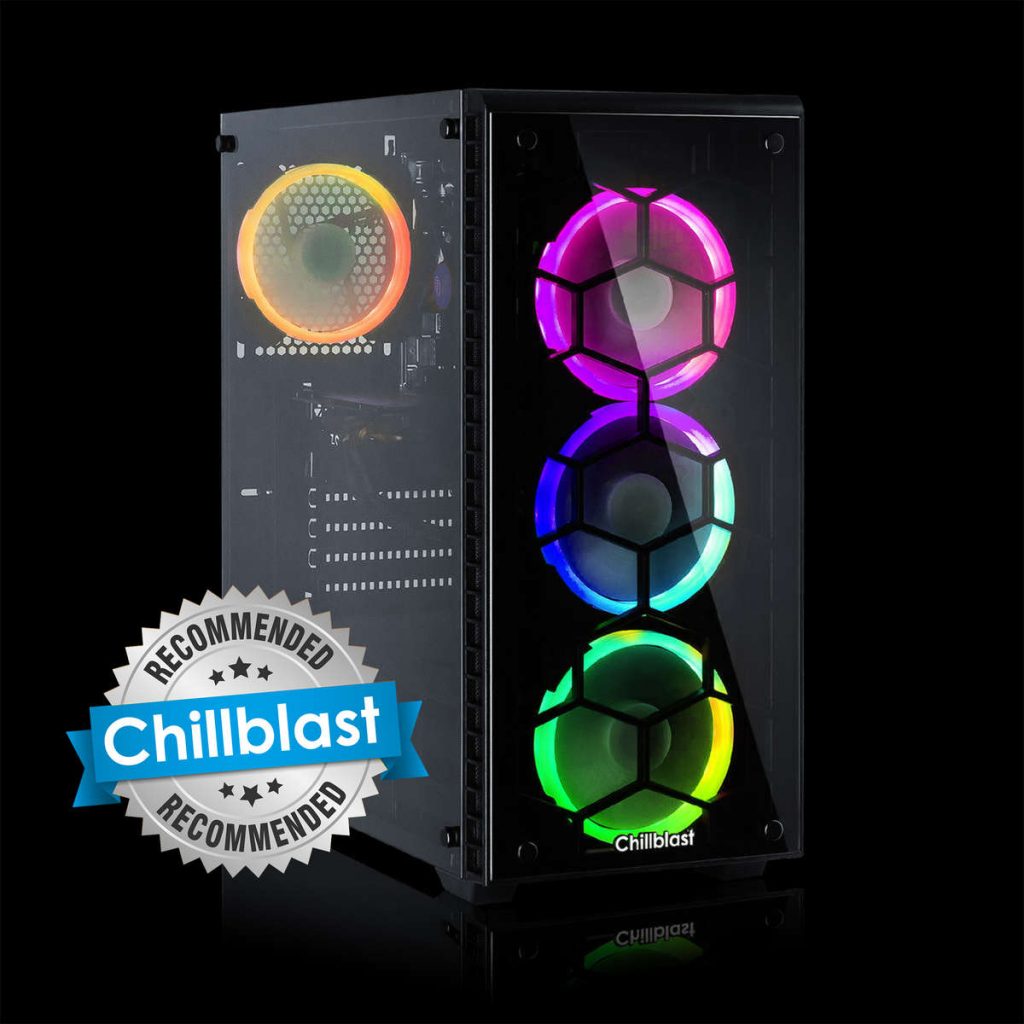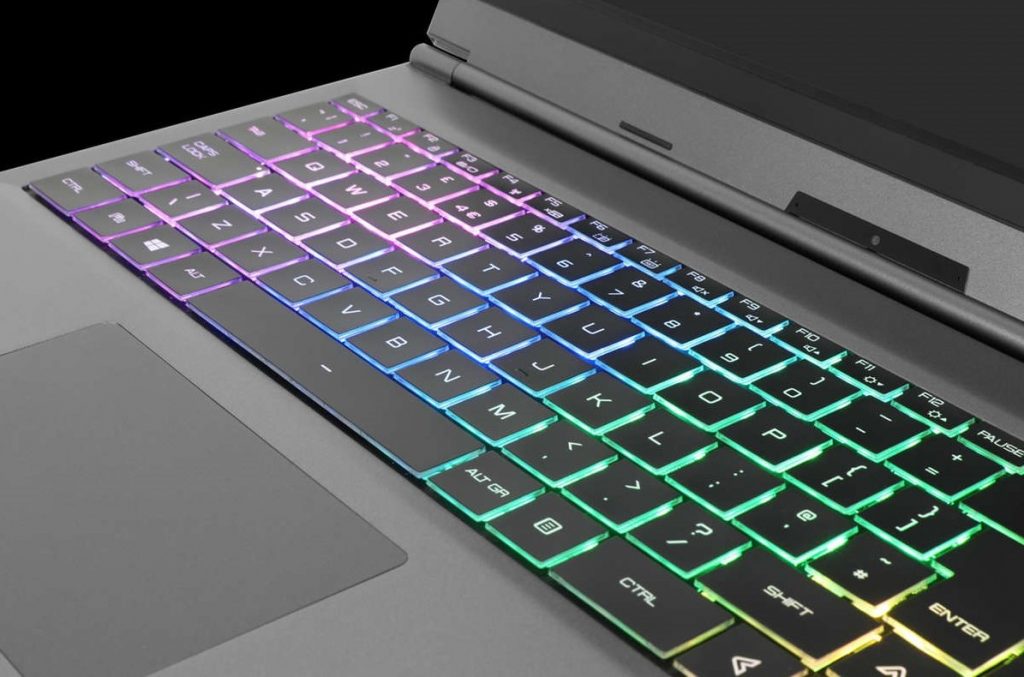Thinking about a Gaming Laptop vs Desktop? Which option is better for playing the latest games or indie classics? We’ve examined the pros and cons of both platforms.
A normal tower PC has traditionally been the best choice for gamers, but gaming laptops have gained prominence recently.
It’s no surprise that portables are now a real gaming option. They’re slimmer, lighter and more powerful than ever – they’ve never been so good for gaming on the go. But there are still pros and cons to gaming laptops, just like there are still advantages and compromises to opting for a conventional PC.
So, what are the benefits of a gaming PC – and when does a gaming laptop make the most sense?

The Traditional Gaming Desktop Powerhouse
Even today, in the gaming laptop vs desktop debate and with laptops getting better, a PC is still the best way to get the ultimate gaming performance. Graphics cards in PCs are still faster than equivalent chips in laptops (even though some graphics cores do feature in both PCs and laptops), and there are clear reasons why graphics cards in PCs retain a lead.
The cooler the better
For starters, PCs are larger and have better cooling systems so the same cores can run at far quicker speeds. Additionally, the extra thermal headroom afforded by proper desktops means manufacturers can install overclocked graphics cards, which deliver an even bigger boost. And, of course, better thermal conditions mean PCs use graphics cards that just aren’t available in laptops – like the high-end Nvidia GeForce RTX 2080 Ti and Titan RTX.
However, graphics cards aren’t the only area where you get more power from a PC. Improved thermal conditions also mean that desktop processors have better speeds and more cores than laptop equivalents, and memory is often faster in PCs.
All of these powerful components deliver better performance in games and applications, and that means you’ll be able to handle a broader range of situations. If you want to run 4K monitors, widescreen panels, VR headsets or titles smoothly on 144Hz or 240Hz screens, then desktops will do that with more aplomb – and with more future headroom – than laptops.
There are other advantages to PCs, though, besides having more power.
The good stuff doesn’t stop there
Overall, PCs are far more versatile. You can combine thousands of different components to create your build. And, when choosing cases, you can pick from a variety of different form factors and designs.
Desktop gaming PCs are better for future-proofing, too, with potential upgrades throughout – whether you want a new graphics card, more memory or extra storage. This is a far cry from most gaming laptops. At most you’ll be able to change the memory and storage, and you may be able to pick different core components, but you won’t get as much choice as a desktop buyer would.
The final important advantage for PC buyers is cost. PCs are almost always cheaper than laptop equivalents. This is because PC manufacturers don’t have to factor in the cost of squeezing everything inside a tiny chassis – and PC firms also don’t have to include screens, keyboards and mice.
Here’s a prime example:
The Chillblast Fusion RTX 3060 Ti costs £1,359 and includes an RTX 3060 Ti graphics core, a Core i5 CPU, 16GB of memory, a 250GB SSD and a 2TB hard disk – all inside a stylish case with plenty of upgrade room.

If you want an equivalent gaming laptop, a machine like the Chillblast Phantom includes the RTX 2080 (which is less powerful than the Ti) alongside similar CPU, storage and memory – but it costs closer to £2,299.

A Tower of Compromises?
There are plenty of advantages to opting for a gaming PC, but there are also several areas of compromise.
Desktop PCs will always be larger and heavier than equivalent laptops. If you don’t have much space at home or if you want to game at LAN events and esports tournaments, a PC just won’t be very portable – and that’s still true even if you opt for a smaller form-factor.
Desktops can potentially be noisier than gaming laptops too; it all depends on what components and cooling you have. And there’s also the simple fact that some people just won’t need a desktop because they aren’t interested in tinkering or upgrading.
Also, the performance advantages delivered by more powerful desktop components are moot if you don’t want to play games at huge resolutions. If you’re a casual player; if you’re happy at 1080p; or if you play less-demanding esports games, then a laptop offers all of the performance you need.
Then there’s the question of peripherals, too. Your PC may be cheaper than a laptop, but you may still have to shell out on a monitor, keyboard and mouse. That’s going to cost more, and it may be an extra shedload of research that you just don’t fancy doing.
Loving a Gaming Laptop?
When comparing a gaming laptop vs desktop alternatives, there are several key areas where gaming laptops have huge advantages, so we wouldn’t be surprised if you’re swayed towards buying a notebook.
There’s the obvious big gain: portability. Most gaming laptops weigh less than 2.5kg and are about 2cm thick, and they’re complete packages that are capable of playing all of today’s top games at top-notch framerates. When you’ve got that power in one package along with a screen, keyboard and trackpad, it’s attractive – especially if you don’t have much space at home, or want to game at LAN events or on the move.
Now, more than ever, small and light gaming laptops also have numerous customisation options. Chillblast’s machines can be specified with different processors, alternative memory options, storage upgrades and upgraded graphics cards. You don’t get quite the range of customisation options that you do on desktops, but it’s still possible to specify a gaming laptop to better reflect your budget and your gaming ambitions.
There’s plenty of power to be found in gaming laptops, too. Modern GPUs easily have enough power to handle gaming at 1080p and 1440p, at high refresh-rates and in esports games that demand triple-figure framerates. And, if you spend enough, it’s possible to get a good gaming laptop that can play games at 4K.
Beyond that, gaming laptops often pair high-end GPUs with powerful processors, lashings of memory and fast storage – so they’re great for content creation and work.
If you want to opt for a portable, all-in-one option rather than a conventional desktop, then you can find huge power and impressive ease-of-use available from the current range of machines – so it’s easy to see why people pick them instead of a normal PC.

The Laptop of Luxury?
Gaming laptops also have compromises throughout – no surprise when so much power has been crammed inside such a small space.
You get less gaming power than in an equivalent PC and that’s because of thermal compromises. Even if a laptop has the same GPU as a desktop, the amount of heat produced means that it just won’t be able to run at the same speed as it would in a PC. You’ll also lose gaming power in a laptop because laptops generally don’t have processors that can match up to desktop PCs, and they often have memory that runs at slower speeds too.
All of that impacts performance. So, while you’ll get good framerates from a laptop, you’ll get faster results on a desktop.
As well as lesser performance, gaming laptops have other compromises. Battery life is often poor, mainly because batteries can only be so big, and graphics cores consume a whole heap of power. You don’t get as many upgrade options once you’ve purchased a machine, either; you’ll probably be able to change the memory and the storage, but that’s it.
There is also a lack of customisation and upgrade options before you buy too. While there are reasonable customisation options available on Chillblast laptops, it still can’t match the versatility provided by a PC.
Screens will be smaller on laptops, too, with 15.6in and 17in the most popular sizes. Those figures can’t match up to the 24in, 27in and 32in screens often used by PC gamers, although laptop users do have the advantage of often sitting closer to their screens when playing games. In addition, you’ll have to opt for a keyboard and trackpad that can’t match the quality offered by desktop peripherals, unless you plug in your own USB hardware.
To top it all off, gaming laptops almost always cost more than desktop equivalents. It’s easy to see why: it just costs more to build slim, light and portable machines that can cope with the thermal demands of high-end gaming components, and it also adds expense when you have to add screens, keyboards and trackpads to the equation.
Gaming Laptop vs Desktop: What Wins?
It’s frustrating, we know, but the various pros and cons to both a gaming laptop vs desktop mean that it’s impossible to pick one type of machine to always triumph. Instead, it’s best to evaluate exactly what you want from your new machine, and use that information to make a decision.
There are several situations where buying a desktop makes more sense. If you want the ultimate choice for performance, a PC is the best answer. Also, if you don’t need to move your machine very often, again, a PC will deliver better value and, similarly, a desktop is superior if you want to upgrade in the future (or if you just like to tinker.)
If you’re on a budget, too, a PC will prove cheaper than an equivalent laptop. Just be aware of screen and peripheral costs on top.
A laptop is better if you want to game on the move, or travel a lot for work, or if you go to loads of LAN events. A laptop is also handier if you don’t have much room at home as its small form factor means storing it away is as easy as putting a book on a shelf.
A gaming laptop could also be better if you’re a less-demanding gamer, or if you don’t want to upgrade in the future. After all, if you’re not going to take advantage of a desktop’s advantages, why pick one?
So, while gaming desktops do still provide ultimate performance, that doesn’t mean they’re necessarily right for you. What we can be certain of, though, is that Chillblast’s range of desktops and laptops are superb – so you’ll be satisfied no matter what you buy.
More resources:
Check out this article for a more in depth look at why gaming laptops are so expensive!
Why not check out this article to learn about good specs when it comes to buying a gaming laptop!
If you want the ease of buying a system that works straight out the box, check out this article about the best pre-built gaming PCs!





